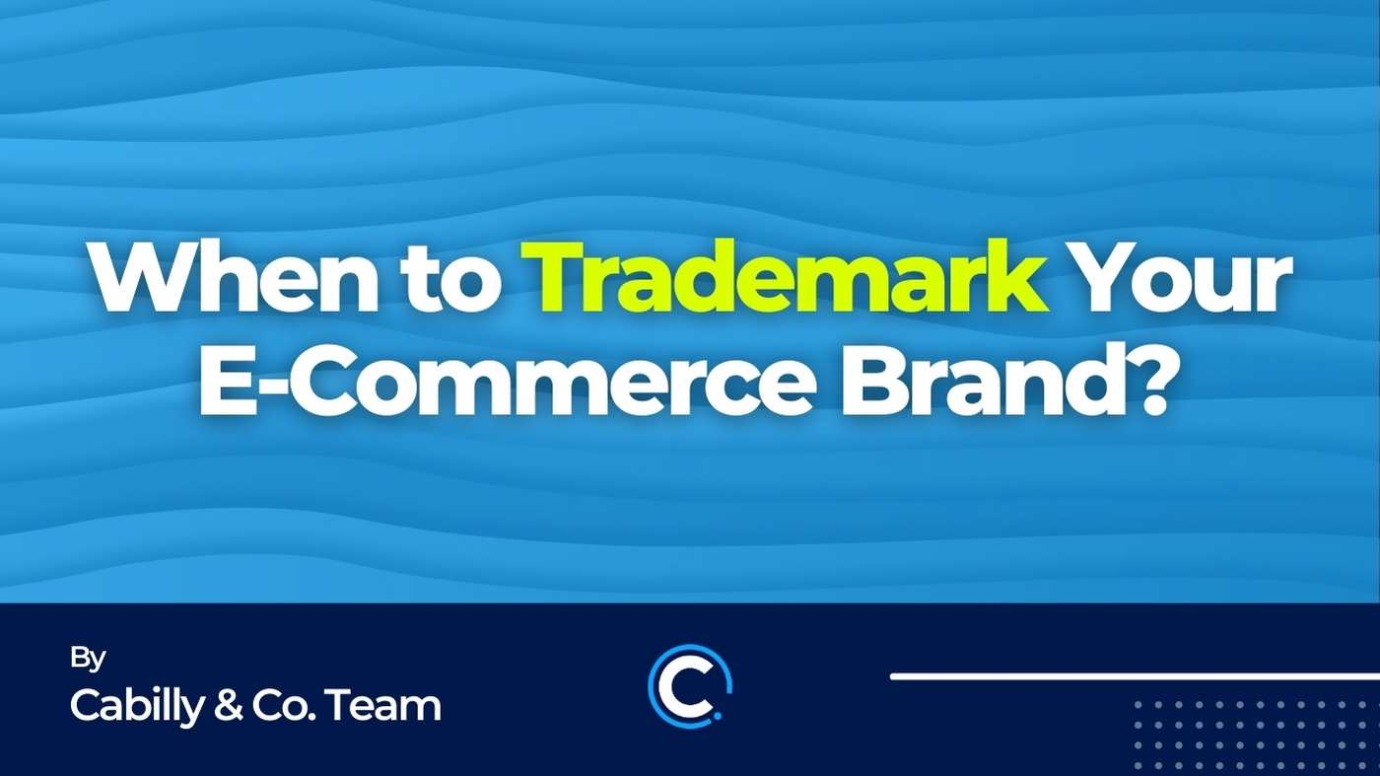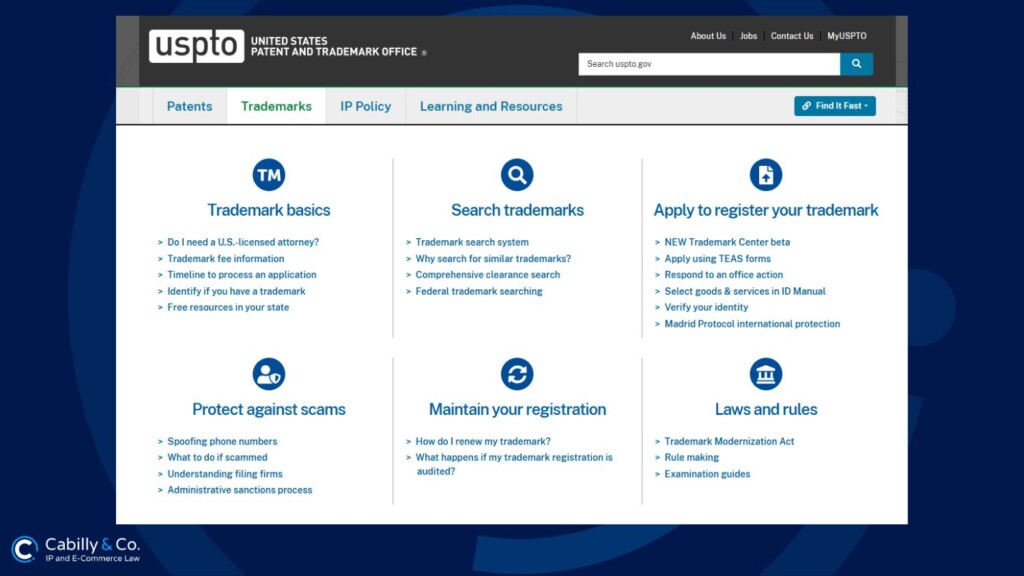
Book a FREE 15-minute consultation with an expert – Book Now
When to Trademark Your Business Name?

In 2024, the United States Patent and Trademark Office (USPTO) reported that it takes an average of 13 months for trademark applications to be registered (source), reflecting the growing demand for trademark protection. For e-commerce sellers, this highlights the increasing competition and the need to act fast to secure their brand’s identity. Your journey to success in e-commerce starts with your brand, but building a brand is not enough if it’s left unprotected. Every year, online sellers who have invested time, effort, and money into their businesses are blindsided when someone else files a trademark for their name first. Filing a trademark is not just a formality; it’s a crucial step in protecting your business, ensuring that your customers trust and recognize your store for years to come. Procrastination can mean losing everything—from your brand’s identity to your financial investment.
What is the “First-to-File” Rule and Why Does it Matter for E-Commerce Sellers?
Trademark law in most jurisdictions operates on a “first-to-file” basis. This means that if two parties apply for the same or a similar trademark, the one who files first may have an advantage in securing the rights. Timing is everything—even a day’s delay can leave your e-commerce business vulnerable.
Consider this: you’ve spent months establishing a presence on Amazon, Shopify, or Etsy. Your products are gaining traction, and your brand name is becoming known among your customers. Just as you’re about to file a trademark application, another seller submits theirs for the same or a similar name. Suddenly, your ability to use your brand name is at risk, and your entire business could be disrupted.
The High Stakes of Delaying Your Trademark Application
-
Competitors Could Claim Your Brand Name
Waiting to file a trademark application creates a dangerous opening for competitors to claim your name or a confusingly similar name. This can lead to confusion among your customers and a potential loss of market share.
-
Legal Disputes Can Drain Resources
If another seller files for a similar trademark before you, it could trigger costly legal battles. Disputes over trademark rights can take months or even years to resolve, draining your time, finances, and focus away from growing your business. For small and medium-sized e-commerce businesses, such disputes can be especially damaging.
-
Rebranding Disrupts Your Sales and Marketing
Losing the right to your brand name can force you into a rebranding process. This involves not only redesigning logos and packaging but also rewriting product listings, updating advertisements, and re-establishing your brand identity with customers. The cost of rebranding can be immense, both in monetary terms and in lost sales momentum.
-
Loss of Trust Among Customers
Your customers rely on your brand to deliver consistent quality and value. If you are forced to change your brand name, it can erode customer trust and loyalty. Filing your trademark early shows professionalism, foresight, and a commitment to your business’s integrity—qualities that resonate with customers and build lasting relationships.
Steps to Protect Your E-Commerce Brand with a Trademark
-
Conduct a Comprehensive Trademark Search
Check that your desired brand name or logo isn’t already in use. This step is essential to avoid conflicts and ensure your application isn’t rejected.
-
File Your Application Without Delay
Once your name or logo is confirmed as available, file your application immediately. Even a small delay can give competitors an opening.
-
Partner with a Trademark Expert
The trademark registration process can be tricky, especially for e-commerce sellers operating on multiple platforms. Work with an attorney who understands your unique challenges to ensure your application is handled correctly.
-
Monitor Your Brand’s Usage Across Platforms
After registration, keep an eye on marketplaces like Amazon, eBay, and Etsy to ensure no one is infringing on your rights. Swift action against violators reinforces your brand’s integrity.

A Real-Life Example: The Cost of Delaying a Trademark
Take the case of an e-commerce seller who invested heavily in building their brand on Amazon. They spent thousands of dollars on professional logo design, product packaging, and advertising campaigns. Their brand quickly gained recognition, and sales began to climb. However, before they could file a trademark application, another seller noticed their growing success and filed a trademark for the same name.
The original seller lost access to Amazon’s Brand Registry because they no longer had legal rights to their brand name. This forced them into an expensive and time-consuming rebranding process. They had to redesign their products, update all listings, and start building customer trust from scratch. The financial and emotional toll was immense, serving as a stark reminder of the risks of delaying trademark registration.
Are There Any Cases Where You Shouldn’t File a Trademark?
There is no absolute case in which it is not advisable to file a trademark. However, specific circumstances might require a more nuanced approach. For instance, if you’re unsure about your brand’s longevity or uniqueness, consulting a trademark lawyer is always recommended. An expert can help evaluate your situation and determine the best course of action to protect your business and brand identity.
Take Control of Your Brand’s Future Today
For e-commerce sellers, your brand is the heart of your business. Filing a trademark early not only secures your brand’s identity but also strengthens your position in a competitive marketplace. Don’t leave your business vulnerable to unnecessary risks.
Act now to protect your brand and ensure your business continues to thrive. Contact Cabilly & Co. for expert guidance on navigating the trademark process and safeguarding your e-commerce success.
Legal Disclaimer: The articles published on our platform are for informational purposes only and do not constitute legal advice in any form. They are not intended to be a substitute for professional legal counsel. For any legal matters, it is essential to consult with us or a qualified attorney who can provide advice tailored to your specific situation. Reliance on any information provided in these articles is solely at your own risk.
Amazon Brand Registry – Discover for Free if You’re Eligible
Increase Your Chance of Getting a
Trademark to 96%
Subscribe to Our Newsletter
Sign up to receive valuable information on E-Commerce and intellectual property

